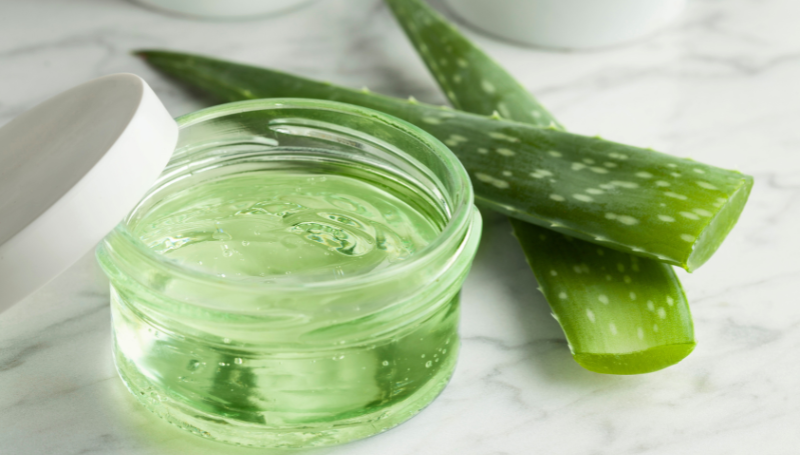Natural remedies for psoriasis
(OMTimes | Andrew Pacholyk, MS, L.Ac) Natural remedies for dermatitis and psoriasis.
What is Psoriasis
Psoriasis is an autoimmune disease that appears on the skin, usually in the form of thick, red, scaly patches. It occurs when the immune system sends out faulty signals that speed up the growth cycle of skin cells. Psoriasis is not contagious. It has been referred to as the same process that a wound heals. If you cut yourself, the skin heals by regenerating the top layers. When the wound is healed, the process stops but for psoriasis sufferers, once this process is triggered by any of a number of factors, skin cells are stimulated to continue growing. This usually doesn’t stop unless the cycle is interrupted with treatment.
Psoriasis is divided into acute phase psoriasis vulgaris and reoccurring chronic psoriasis vulgaris. These are divided into five types of psoriasis: plaque, guttate, inverse, pustular and erythrodermic. The most common form, plaque psoriasis, appears as raised, red patches or lesions covered with a silvery white buildup of dead skin cells, called scales. Psoriasis can occur on any part of the body.
Psoriasis is often associated with other serious conditions such as diabetes, heart disease and obesity.
Herbal remedies for psoriasis
Herbs that are beneficial for dermatitis (if you are not allergic to them) include burdock root, chamomile, cedarwood, dandelion, marigold, red clover, thyme, and verbena.
A study published in the British Medical Journal Lancet showed a significant improvement in eczema when patients took high doses of Evening Primrose Oil (EPO) in capsule form. There have been some reports that EPO can help in cases of atopic dermatitis. It takes a rather large number of these expensive capsules to produce results and it can take at least six months to see any results.
Flaxseed oil taken internally or applied externally often eases symptoms of eczema.
Aloe vera gel and Calendula lotion or cream can sooth irritated skin.
Take 500 milligrams of Black Currant Oil twice a day. Give children under 12 half that dose. This takes six to eight weeks to produce the desired effect.
Burdock Root – Helps to purify blood and restore the liver to aid in a restful sleep. Helps to reduce buildup of toxins in the skin resulting in boils and other skin disorders. Helps gallbladder functions and stimulates the immune system.
Chamomile – Chamomile’s medicinal properties range from skin inflammations to lightening hair to treating digestive problems. As a mild sedative, anti-inflammatory, and antibacterial, it improves digestion by relaxing the muscles throughout the gastrointestinal system and it can induce an overall sense of calm and well-being.
Dandelion – is a leading remedy for detoxing the liver. It stimulates the flow of bile, a fluid that aids fat digestion, which is why it’s used for liver and gallbladder disorders. Dandelion has scientifically documented potent diuretic properties. It relieves constipation and eases bloating and swelling. Dandelion should be used for 4 to 6 weeks at a time. For its liver benefits dandelion is helpful for skin disorders.
Red Clover – is an herb suggested for chronic conditions affecting the skin. It is a diuretic, but it’s unknown exactly how it works for skin conditions. Use non-fermented red clover which is safe. Red clover contains a substance called genistein, which has anticancer properties.
Thyme Leaf – The pungent oils found in Thyme are an effective anti-microbial in the treatment of respiratory infections. When taking Thyme, people often note tasting it on their breath as the oils permeate through the respiratory system to reduce the proliferation of viruses during infections. It also warms the digestion and reduces metabolic congestion, aiding to clear the body of conditions for infection.
Aloe vera looks like a cactus with soft leaves. The fluid contained in the leaves has been used for centuries to treat burns and minor wounds. Today, aloe gel is used frequently as an ingredient in cosmetics, creams, ointments and suntan lotions. A study published in 1996 in Tropical Medicine and International Health found that aloe vera was very effective in the treatment of psoriasis. By the end of the 16-week study, a cream with aloe vera extract caused a significant clearing of psoriasis in 25 of 30 patients, compared to two out of 30 with the placebo. However, a study published in May 2005 in the Journal of the European Academy of Dermatology and Venereology found that the effect of commercial aloe vera gel on stable plaque psoriasis was modest and not much better than placebo.
Apple cider vinegar and many different types of vinegar (derived from dates, figs, etc.) have been used by many ancient cultures for medicinal purposes. Apple cider vinegar has been used throughout the years as a disinfectant or soothing agent. The Psoriasis Foundation hears from people who apply apple cider vinegar to their skin as a treatment for psoriasis. People add it to the bath, mix it with a moisturizer, soak fingernails and toenails in it, and apply it directly to the skin with cotton balls or pads.
Capsaicin, a natural ingredient found in cayenne peppers, has been shown in some studies to work on redness, scaling and itching of the skin. Researchers have shown that capsaicin interrupts the action of substance P, (a molecule which affects how the brain recognizes pain and itch sensations) at the nerve ending. In two separate studies with psoriasis patients, 0.025% capsaicin cream used topically was effective in decreasing scaling and redness. The main side effect was a short-lived burning sensation. Several studies indicate that topical capsaicin products can also help reduce joint pain associated with psoriatic arthritis. Capsaicin can cause a severe burning sensation if it comes in contact with the eyes, nasal passages or mucous membranes.
Emu oil is reported to be helpful for dermatitis suffers of all kinds, as this oil has a protective and softening effect on the skin. The exact mechanism by which emu oil works is not known.
Oats and oat extracts have been used for centuries as soothing topical agents. Oat plant derivatives have been used to manage dry, itchy skin conditions. Many bath products include colloidal oatmeal as the active ingredient. You can make your own oatmeal bath. Combine one cup oats, one quarter cup dried milk and two tablespoons apricot kernel oil. Pulverize the oats and dry milk in a food processor or blender. Gradually mix in the oil. Place the mixture in a cotton bag, sock or handkerchief and put in the tub while filling. To release the preparation, squeeze while soaking in the bath.
Source: OMTimes
You may also like:
Natural remedies for headaches
How practicing self-care can improve every aspect of your life




